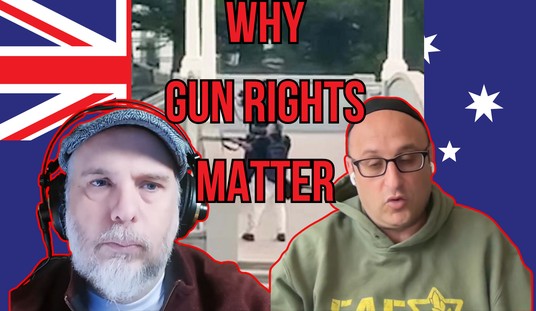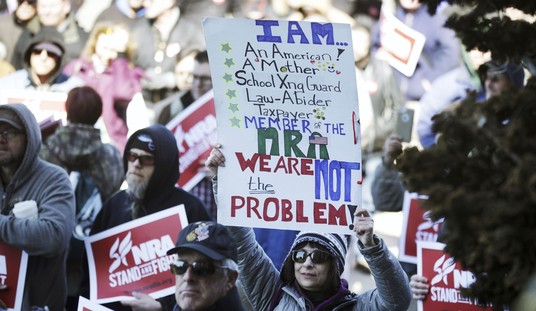The shooting at Abundant Life Christian School in Madison, Wisconsin is fading from the headlines. Time has that effect. New stories pop up and push the old ones out of the news cycle. The fact that one of those stories is a terrorist attack in New Orleans that killed more people than the shooting did is just going to be one of those things.
But people haven't completely moved on, which is fine in and of itself. We shouldn't just move on from a deadly attack simply because the news cycle has.
On the same token, though, let's not pretend that anti-gunners won't blatantly misrepresent the facts of what happened in Madison to try and prove a point, which is precisely what happened.
On December 16, in Madison, Wisconsin, fifteen-year-old Natalie Rupnow shot and killed two other people before taking her own life. Authorities quickly discovered that she had allegedly plotted the attack with Alexander Paffendorf, a twenty-year-old California man who admitted to having his own plan to arm himself with a gun and explosives and target a government building.What happened next illustrates how state laws can help—or hinder—efforts to prevent mass shootings.
Police, invoking California’s red-flag law, were able to immediately issue an emergency protective order requiring Paffendorf to surrender any firearms in his possession, potentially avoiding additional tragedy.
Red-flag laws are civil, not criminal, processes that authorize emergency orders to temporarily restrict a person’s access to firearms if there is significant concern that the person is a danger to themselves or others. While these laws vary, twenty-one states have some version in effect. Wisconsin, where the shooting took place, does not.
Without a red-flag law, in many jurisdictions, police generally can’t separate someone from their guns until after a crime has been committed. While Paffendorf would have been arrested in any state once it was discovered that he was plotting an attack, if he lived in Wisconsin rather than California, the authorities would have had to build a criminal case against him before initially restricting his access to firearms. This could have taken more time, perhaps a few days, and there’s no telling how he might have used it.
In my work as an emergency department doctor, I care for teenagers and adults who are referred for psychiatric evaluations when they threaten to harm others or manifest other expressions of homicidal ideation, but they are not charged with a crime unless they took concrete steps to plan or implement an attack.
First, the Madison killer didn't seem to be giving anyone any signals that she was planning a mass shooting. She was 15 years old, which means she couldn't lawfully own a firearm in the first place. So how are you going to use a red flag order to take something from someone who didn't legally own something in the first place, particularly when there's not any evidence we've seen that she was sending anyone warning signals that she was planning any such thing?
See, simply announcing that Wisconsin doesn't have a red flag law doesn't mean such a law would be used. Further, we've also seen numerous mass shootings happen in states with those laws on the books and we have for years. This attempt to misrepresent the facts of Madison is bad enough, but so is ignoring all the ways in which these laws fail completely.
Plus, let's look at that last paragraph for a moment.
This is, of course, the doctor's attempt to sell the idea of red flag laws. Yet there are already laws on the books for a situation like this. No, homicidal ideation isn't a crime, generally speaking, but it is alarming. All 50 states have some variation of a 72-hour hold for people who are talking about hurting themselves or others. There's nothing stopping the doc from trying to use that.
Such holds have the added benefit of keeping such people away from anything that can be used to hurt others, such as...oh, I don't know...full-size pickup trucks?
I won't get into the tons of reasons why red flag laws are problematic. Our own Ryan Petty did a fantastic job of that recently.
I will say, though, that if you have to keep misrepresenting facts to sell something, then maybe it's a terrible idea in the first place.








